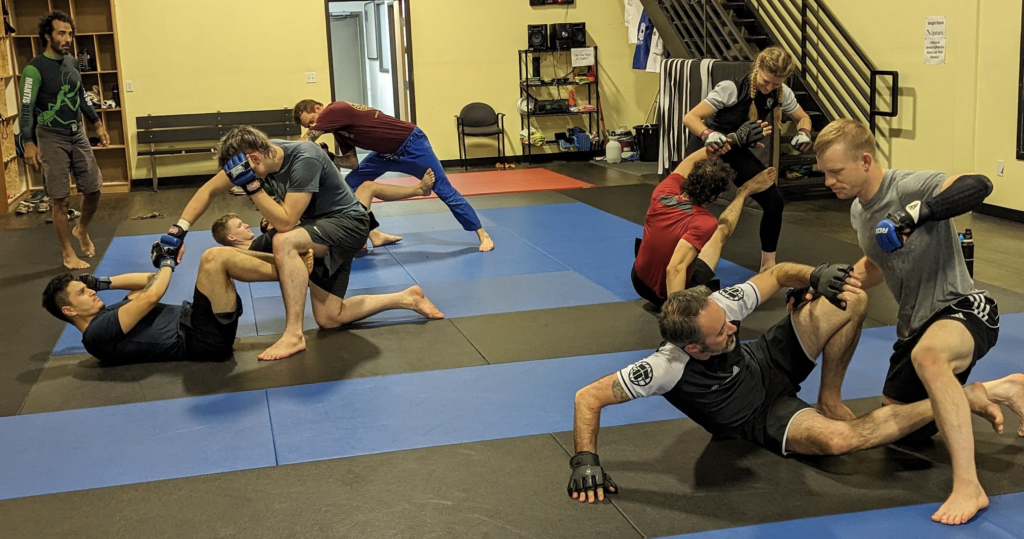Always wanted to try martial arts, but just not sure what’s actually involved? This is the page for you!
In all seriousness, we have members of all ages and abilities. You don’t need to be physically “fit” or coordinated to get started, or have a partner. Our focus is on community – that means helping and welcoming new people!
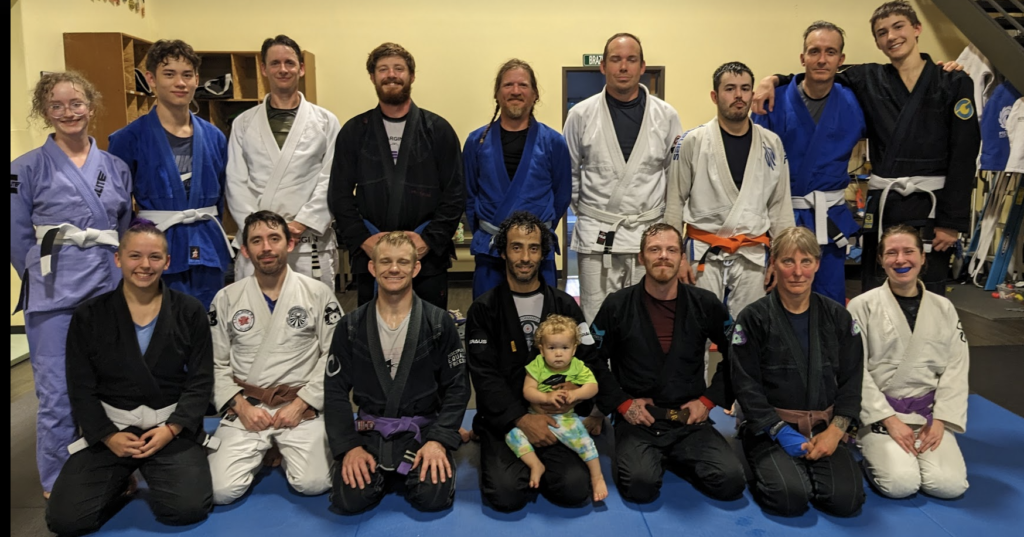
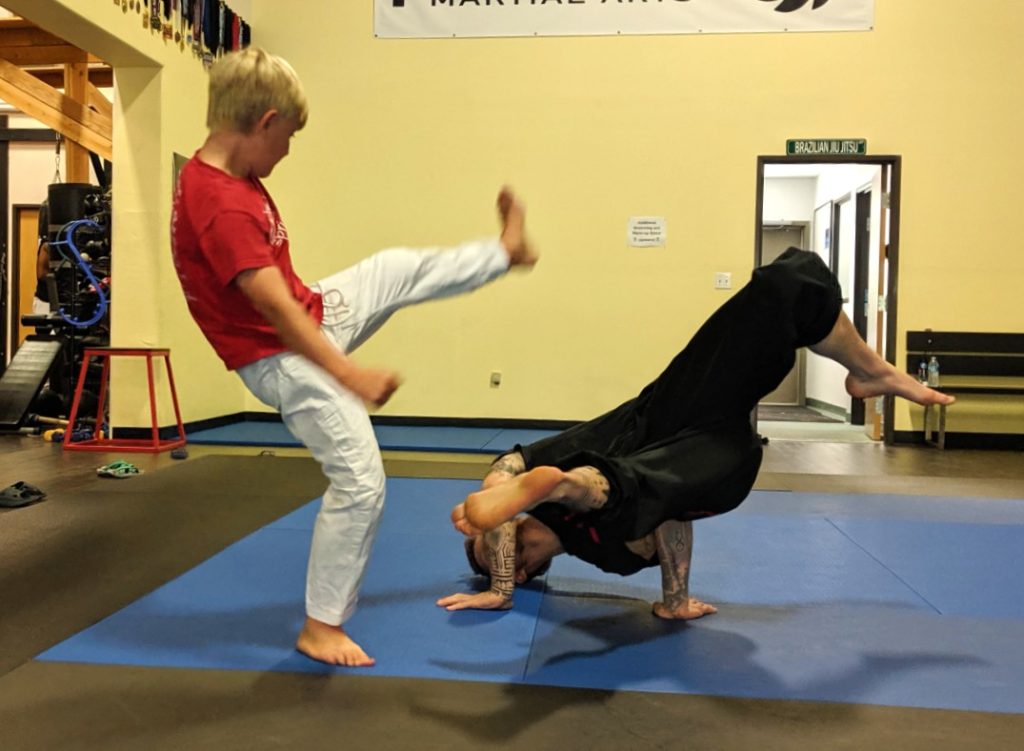
Myth # 1: Everyone else knows exactly what to do, except for you.
Yeah, right. With the exception of the occasional olympic-level athlete who just happens to drop by, pretty much everyone feels like they’ve acquired 3 left feet and didn’t realize they can’t tell their arm from their leg. This continues for about six months. Then, one day, you work with a really new person and you realize, “hey, I do know more than I knew when I started!”
And then we do Berimbolo’s or jumping flying spinning kicks or cartwheels. It’s a learning process, ok?
Myth # 2: Two years, I get my black belt, I’m done!
Yes, we have belts and promotions in BJJ. But a black belt is just a sign that you’re a serious student. Seriously, it is! Belts and tests are a great way to see your progress, but there is always room for improvement or deeper understanding.
Here’s coach Erik getting his brown belt. Let’s just say Erik is a very serious martial artist, and it took longer than two years.
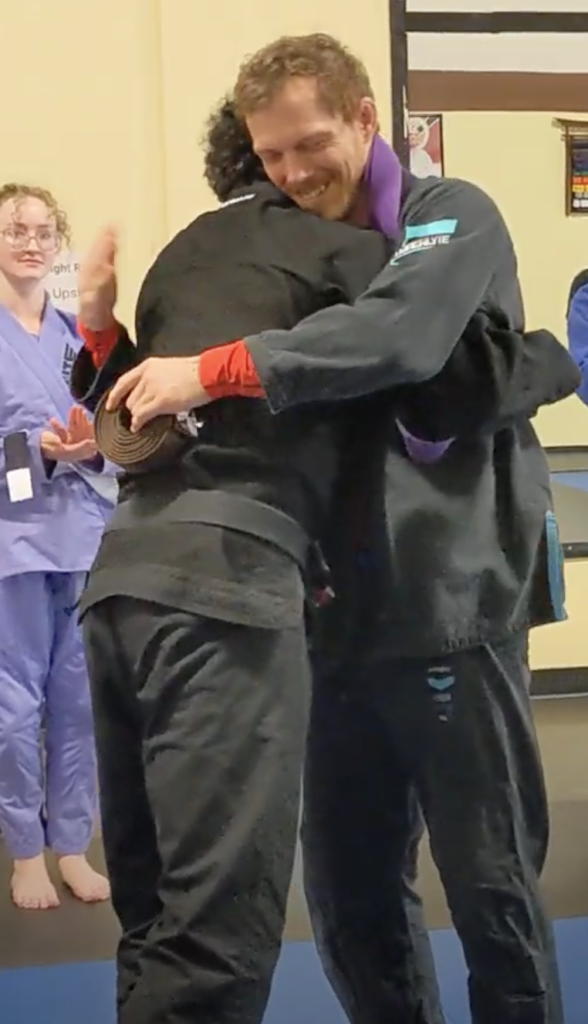
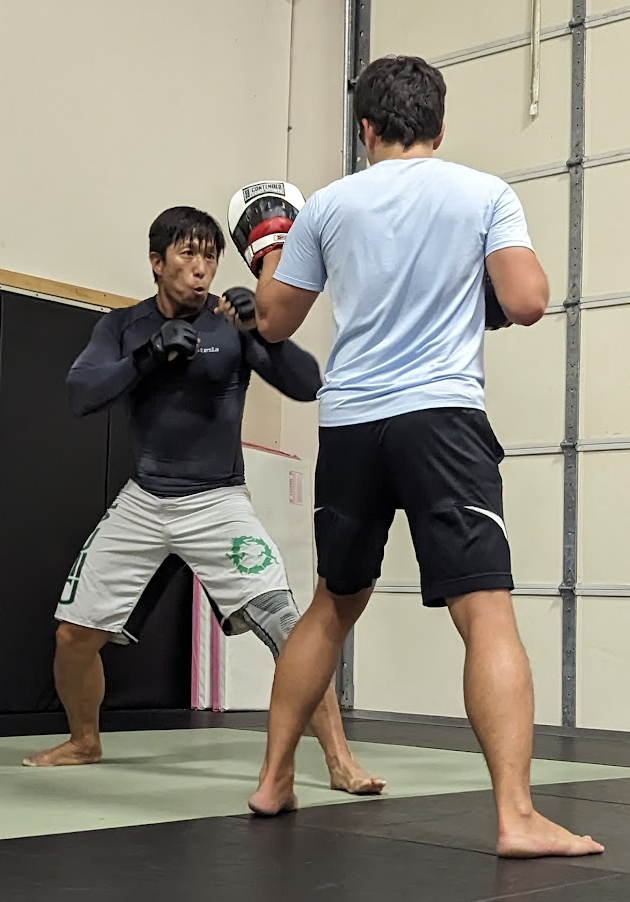
Myth # 3: I have to fight the big scary dude/dudette?!?!
Um, no? One of the awesome things about BJJ is you can try out your moves “for real” (also known as sparring). But only when you want to and feel ready for it. We’ve also got a lot of experienced people that can throw punches at you/apply a choke hold in a (?) kind and gentle way (?)
It may seem strange, but one of the things martial arts teaches you is confidence in the face of adversity. Or, more simply, yes, you can hit someone in the face (and get hit back) and you’ll still be ok.
Myth #4: You get hurt a lot in Martial Arts
Ok, you’ll get mat burn (ouch), the occasional interesting bruise, and sore muscles and fingers. But serious breaks and sprains? Very rarely. We have a culture of taking care of our partners – if you break your partner, you don’t get a new one…
It’s also about focus – if you’re working on a technique that can break someone’s arm you’re hyper aware that you can, and communicating with your partner about when to stop.
